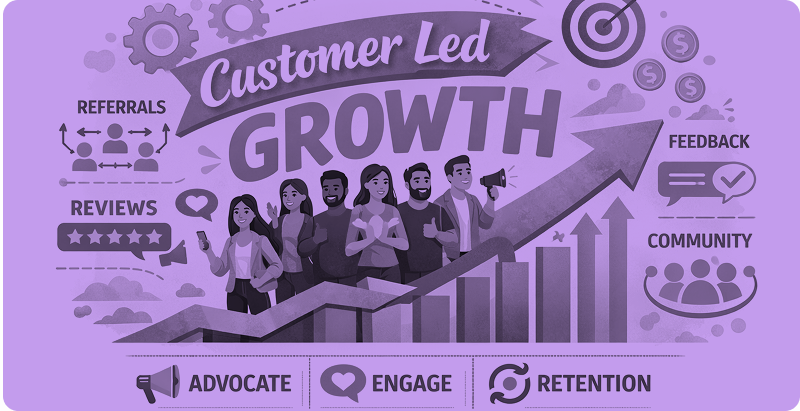Master customer success operations implementation with this comprehensive guide for B2B leaders. Discover when to hire CS Ops professionals, craft 30-day onboarding plans, and assess team performance to deliver exceptional customer experiences worldwide.
In the fast-paced world of customer success, the role of customer success operations (CS Ops) has emerged as a critical component for businesses aiming to deliver exceptional customer experiences. This article aims to explore the key aspects of CS Ops, including its definition, the daily responsibilities of a CS Ops professional, when to hire the first CS Ops person, crafting a 30-day onboarding plan, and assessing the performance of your CS Ops team member.
What is CS Operations?
CS operations refer to the strategic and operational activities that support the customer success team in achieving their goals. It involves designing and implementing processes, systems, and metrics to optimize customer success efforts. CS Ops plays a pivotal role in aligning various departments, leveraging data-driven insights, and streamlining operations to enhance customer satisfaction and drive long-term success.

A Day in the Life of a CS Ops Professional
The role of a CS Ops professional is multifaceted and dynamic. Their typical responsibilities include:
- Implementing and managing customer success tools and platforms
- Analyzing customer data to identify trends and opportunities
- Developing and improving customer success processes and workflows
- Collaborating with cross-functional teams to ensure alignment and cohesion
- Creating and maintaining customer success metrics and reporting
- Supporting customer success managers in their day-to-day activities
- Conducting customer surveys and gathering feedback for continuous improvement
When is the Right Time to Hire Your First CS Ops Person?
Knowing when to hire your first CS Ops person depends on various factors, including the size of your customer base, the complexity of your product or service, and the maturity of your organization. As a general guideline, consider hiring a dedicated CS Ops professional when:
- Your customer base is growing rapidly, making it challenging to manage operations manually
- Your customer success responsibilities are becoming increasingly complex and require specialized expertise
- You need to implement scalable processes and systems to enhance efficiency and customer satisfaction
- There is a need for data analysis and insights to drive strategic decision-making
- Your organization is ready to invest in customer success as a strategic initiative
Customer Success Operations Roles
Customer success operations involve a range of roles that contribute to the success of the team and the organization as a whole. Let's explore some key customer success operations roles:
- Technical Account Manager (TAM): TAMs provide technical expertise and support to customers. They help with the implementation, configuration, and troubleshooting of the product or service, ensuring smooth adoption and usage. TAMs work closely with CSMs to understand customers' technical requirements and provide tailored solutions.
- Customer Success Operations Manager: The Customer Success Operations Manager oversees the strategic and operational aspects of customer success operations. They collaborate with cross-functional teams to define and implement customer success processes, manage customer success tools and systems, and ensure the overall effectiveness of customer success operations.
- Data Analyst: Data analysts play a critical role in customer success operations. They analyze customer data, usage patterns, and behavioral insights to identify trends and opportunities. Data analysts provide actionable insights to improve customer success strategies, drive product enhancements, and optimize customer journeys.
- Onboarding Specialist: Onboarding specialists focus on ensuring successful customer onboarding experiences. They guide new customers through the initial setup, configuration, and training processes, ensuring a smooth transition into using the product or service effectively.
- Renewals and Expansion Specialist: Renewals and expansion specialists are responsible for driving customer renewals and identifying opportunities for account expansion. They work closely with customers to understand their evolving needs, highlight the value of continued partnership, and explore additional offerings or upgrades.
{{cta-scale}}
Crafting a 30-Day Onboarding Plan for a CS Ops Professional
A well-structured onboarding plan is crucial for the success of a new CS Ops hire. Here's a suggested outline for a 30-day onboarding plan:
Week 1:
- Introduce the CS Ops professional to the team and provide an overview of the organization's customer success strategy and goals.
- Familiarize them with the existing customer success processes, tools, and systems.
- Provide access to relevant documentation, resources, and knowledge repositories.
- Facilitate meetings with key stakeholders to understand their expectations and requirements.
Week 2:
- Deep dive into the organization's customer data, analytics, and reporting tools.
- Collaborate with the CS Ops professional to set up or optimize customer success metrics and dashboards.
- Shadow customer success managers to gain insights into their daily activities and challenges.
- Begin analyzing customer data to identify trends, patterns, and areas for improvement.
Week 3:
- Collaborate with the CS Ops professional to identify process gaps and areas of improvement.
- Work together to streamline workflows and implement automation where possible.
- Start documenting and improving customer success processes and standard operating procedures.
- Provide training on customer success tools and platforms.
Week 4:
- Review the progress made during the onboarding period and address any challenges.
- Set specific goals and expectations for the CS Ops professional's future contributions.
- Encourage knowledge sharing and cross-functional collaboration.
- Conduct a final review and seek feedback from the CS Ops professional.
Assessing the Performance of Your CS Ops Person
To gauge the effectiveness of your CS Ops professional, consider the following metrics and indicators:
- Timely and accurate reporting: Assess the CS Ops professional's ability to generate reports and metrics promptly and accurately. Regular reporting on key customer success metrics, such as customer retention, expansion, and satisfaction, demonstrates their effectiveness in monitoring and improving customer success operations.
- Process improvements: Evaluate the CS Ops professional's contributions in streamlining workflows, implementing automation, and documenting standard operating procedures. Measure the impact of these improvements on operational efficiency and customer satisfaction.
- Cross-functional collaboration: Monitor the CS Ops professional's ability to collaborate effectively with different teams, such as customer success managers, sales, product development, and marketing. Their active involvement in cross-functional initiatives and their ability to align efforts and foster a customer-centric culture are indicators of success.
- Data analysis and insights: Assess the CS Ops professional's proficiency in analyzing customer data, identifying trends, and translating insights into actionable recommendations. Their ability to leverage data to drive strategic decision-making and deliver personalized customer experiences is crucial for long-term success.
- Feedback and satisfaction: Seek feedback from customer success managers and other relevant stakeholders regarding the CS Ops professional's support and contributions. Regular communication and open dialogue can provide valuable insights into their performance and areas for improvement.
- Adaptability and learning: Evaluate the CS Ops professional's willingness to learn, adapt to new technologies, and stay updated with industry trends. Their ability to embrace new tools, methodologies, and best practices ensures ongoing improvement in customer success operations.
- Initiative and problem-solving: Consider the CS Ops professional's proactive approach to identifying and addressing operational challenges. Assess their ability to proactively suggest process improvements, propose innovative solutions, and take ownership of projects.
By regularly evaluating these performance indicators, you can ensure that your CS Ops professional is effectively contributing to the overall success of your customer success operations.
{{cta-scale-2}}
Sales vs. Customer Success: Collaboration for Success
Sales and customer success teams are both essential for the growth and profitability of a company. While their goals and responsibilities may differ, collaboration between these teams is crucial for overall success. Let's explore how sales and customer success can work together effectively:
- Seamless Transition: Sales and customer success teams should ensure a smooth handoff of customers from the sales process to customer success. This includes clear communication, sharing of customer information, and aligning expectations to ensure a seamless transition and continuity of the customer journey.
- Shared Customer Knowledge: Sales teams possess valuable insights into customer needs, pain points, and desired outcomes. Collaborating with customer success allows for the transfer of this knowledge, empowering customer success teams to provide tailored support and guidance.
- Coordinated Goal Setting: Sales and customer success should align their goals to drive customer satisfaction and growth. This can be achieved through regular communication, joint planning sessions, and setting shared objectives that focus on both acquiring new customers and ensuring their long-term success.
- Feedback Loop: Establishing a feedback loop between sales and customer success enables continuous improvement. Customer success teams can provide valuable insights to sales about customer satisfaction, product feedback, and areas for improvement. Similarly, sales teams can share feedback on customer expectations, competitive landscape, and market trends to help shape customer success strategies.
- Collaboration on Upselling and Cross-Selling: Sales and customer success teams can collaborate on identifying upselling and cross-selling opportunities. Customer success teams, with their deep understanding of customer needs and usage patterns, can provide valuable input to sales teams to drive revenue growth through expansion within existing accounts.
- Continuous Communication: Regular meetings and communication channels between sales and customer success teams foster collaboration, alignment, and the exchange of valuable information.






.png)

.png)




%20(1).png)
















.png)
.png)
.png)



.avif)






.png)
.png)







